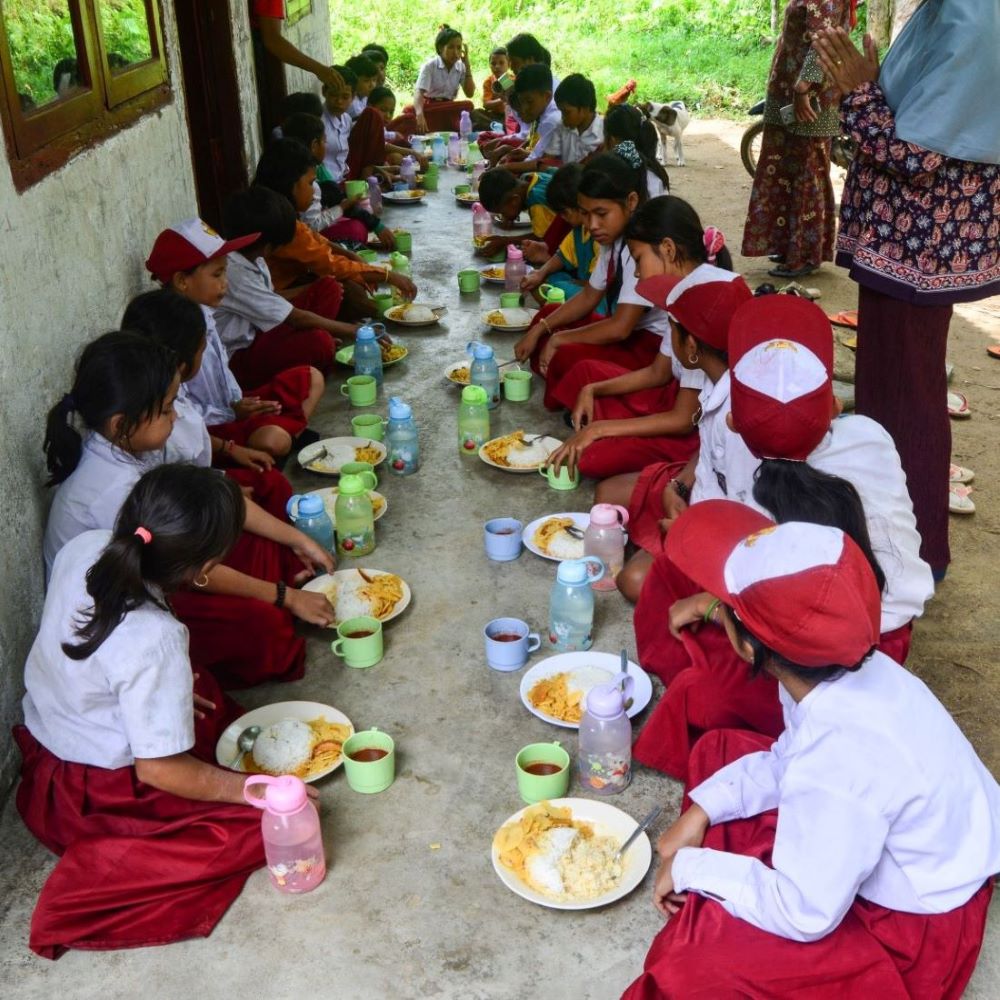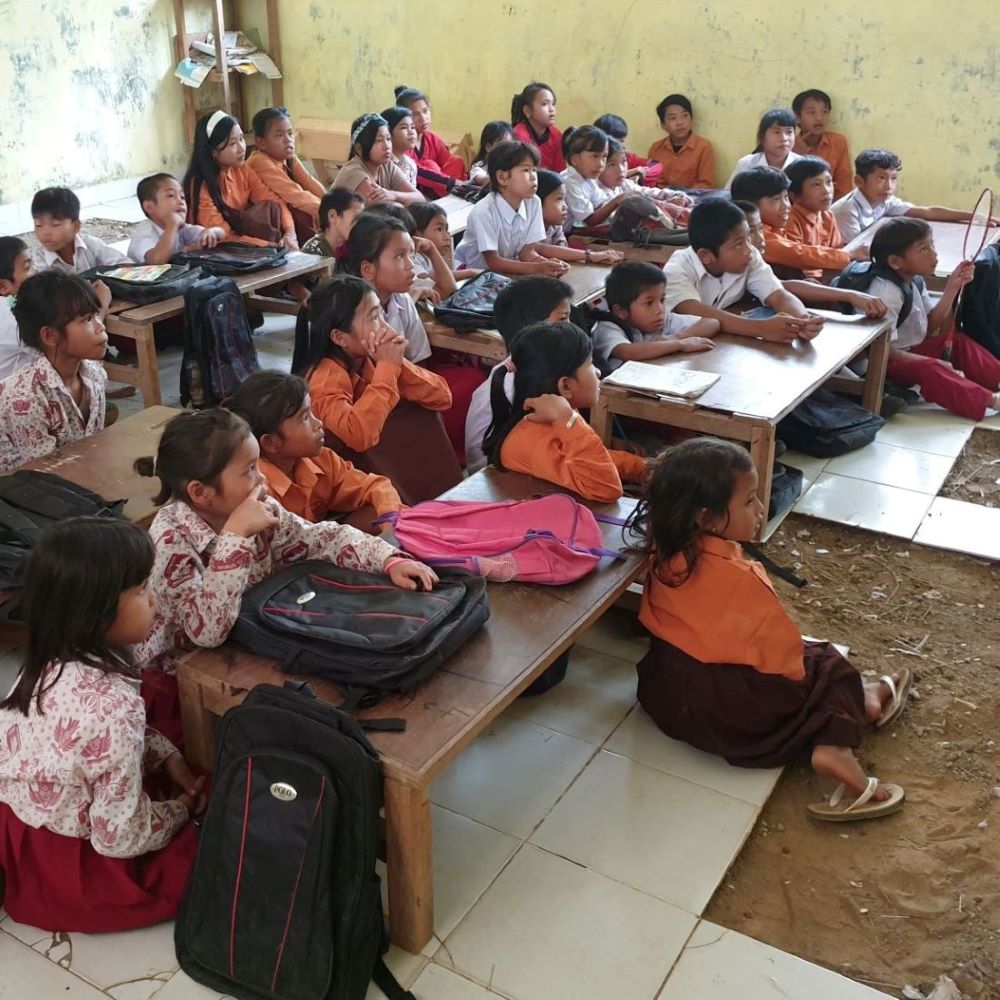The 24th of January is International Day of Education so we wanted to share some of the education programs we’re involved with. One of our key focuses is to educate local villagers and communities about the value of the forest and the species who live there. For many years, we’ve worked alongside and with communities, schools, indigenous people and farmers to increase knowledge, understanding and commitment to conservation.
Conservation and protection of forests and Critically Endangered Sumatran tigers is not possible without local people. Importantly, when the forests are cut down or destroyed, the local and indigenous people who live in and near the forests suffer the most. For these reasons and many more, we have a strong commitment to education and empowerment of communities in Sumatra. Here are just some of the education and training programs we provide and support.
In the photo below, you can see young students at a school in Sumatra learning about forestatioon from the Mobile Education Unit, with the aim of transforming their school grounds into regenerated forest.
(1).jpg)
(1).jpg)
Mobile Education Units in Bukit Tigapuluh Ecosystem
Our partner Frankfurt Zoological Society (FZS) carries out education and awareness raising in schools and communities in Sumatra through their Mobile Education Unit. This is the primary education resource for educating local communities and school children about the importance of protecting the Bukit Tigapuluh (BTP) ecosystem and the species such as Sumatran tigers who live there.
The education team regularly visits local schools and farmers at the buffer zone of the BTP National Park to build acceptance and support for conservation. It is crucial to build a good relationship with local people and to understand their needs and reservations regarding conservation. The team also runs workshops in environmentally friendly forestry with local villagers and farmers.
Talang Mamak Indigenous School
The Bukit Tigapuluh ecosystem in Sumatra is home to two indigenous tribes including the Talang Mamak. The Talang Mamak are a non-nomadic Indigenous community of about 8,000 people who live solely in the Bukit Tigapuluh landscape. Due to their low income, some members of the community participate in illegal logging, clearing their traditional village forests for short-term income.
Doing so puts at risk the long-term economic sustainability and health of the community, but also contributes to the deforestation of the Bukit Tigapuluh landscape and further reduces habitat for Sumatran tigers. Research by Australian academics, Lesley Potter and Simon Badcock, found the priority development of the Talang Mamak is education for their children but the cost associated with it has been too great (2001).
We partnered with Frankfurt Zoological Society and WWF Indonesia partnered to focus on conservation of the buffer zone of the Bukit Tigapuluh National Park and of the species that live there. In 2019, we started providing nutritious meals - breakfast, snacks and lunch - to Talang Mamak children at the local school.
The children’s learning and attendance has improved and the community wellbeing has also increased. Alongside this work, we also engage with the rest of the community and the Elders, educating them about the value of the Bukit Tigapuluh Ecosystem.
First row of photos: Children and staff at the Talang Mamak school, including the children eating their main meal of the day
Second row of photos: Mobile Education Unit teaching children and farmers about reforestation, composting and the importance of the forest
To read more about our education programs, visit the 'What We Do' page on our website.

(1)_reduced.jpg)
_reduced_square.jpg)



